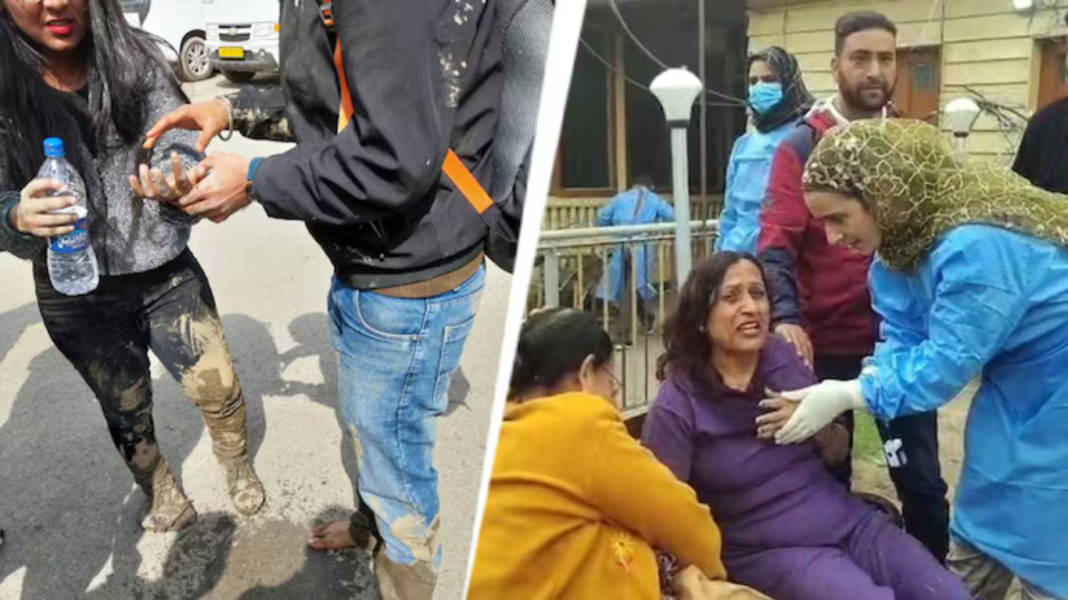
Jammu and Kashmir was rocked by a horrifying incident on April 22, 2025, as a brutal terrorist attack in the scenic Baisaran Valley near Pahalgam claimed the lives of 26 innocent tourists. Over 10 others were seriously injured in the attack, making it one of the worst tragedies in the region in recent years. The country has reacted with shock, grief, and calls for justice.
The incident occurred in the beautiful meadows of Baisaran, often dubbed the “Mini Switzerland of India.” As a group of tourists enjoyed the peaceful surroundings, heavily armed terrorists opened fire from nearby forests. Panic broke out as bullets rained down on the unsuspecting crowd, resulting in chaos and devastation. The Baisaran firing is now considered among the most violent terrorist attacks in Kashmir in recent memory.
In immediate response, security forces including the Indian Army, Jammu and Kashmir Police, and CRPF initiated a massive search operation in Jammu and Kashmir. The region around Pahalgam was cordoned off as drones, helicopters, and sniffer dogs were deployed to locate the attackers.
So far, 26 terrorists have been killed in the intense counter-operations, with more believed to be hiding in the forest areas. Authorities have set up roadblocks and checkpoints in all directions to ensure no militant escapes.
Prime Minister Narendra Modi responded promptly, holding a high-level emergency meeting with NSA Ajit Doval, Home Minister Amit Shah, and J&K Lieutenant Governor Manoj Sinha. PM Modi condemned the Pahalgam tourist attack and vowed that the perpetrators would face the harshest consequences.
He also directed all intelligence agencies to tighten their grip on suspected militant activity and promised to enhance tourist safety in Kashmir. The Prime Minister assured the public that India will not bow to terrorism.
A militant outfit calling itself “Kashmir Resistance” claimed responsibility for the attack. The group, largely unknown until now, accused the Indian government of attempting to change the demographics of Jammu and Kashmir by promoting settlement from outside the region.
This declaration has reignited the long-standing and unresolved Kashmir conflict, fueling political debate across the nation and internationally.
The terrorist attack in Kashmir drew swift condemnation from global leaders. U.S. President JD Vance, who was in India on an official visit at the time, expressed strong support and solidarity with the Indian people.
Other world leaders, including UK Prime Minister Rishi Sunak, former President Donald Trump, and representatives from France, Germany, and the United Nations, issued statements denouncing the attack and calling for coordinated global efforts to fight terrorism.
This tragedy is a major setback for the Kashmir tourism industry, which had been slowly recovering. Travel agents are seeing a surge in cancellations, and many are questioning the safety of visiting Jammu and Kashmir.
The government has responded by promising tighter surveillance, deployment of advanced security systems, and enhanced protection for popular tourist zones. There is now an urgent push to restore confidence in the region’s hospitality sector.
Across India, people are mourning the victims of the Baisaran terror attack. Candlelight vigils and peaceful marches are being held in cities from Delhi to Chennai. Social media has erupted with hashtags such as:
- #BaisaranAttack
- #TerrorInKashmir
- #JusticeForTourists
- #KashmirSecurity
- #IndiaAgainstTerrorism
Public sentiment is unified in demanding a strong government response and permanent solutions to curb militancy in Jammu and Kashmir.
The Baisaran firing is a painful reminder that the Kashmir conflict remains a volatile and unresolved issue. While the Indian government has responded quickly with a massive counter-terror operation, there is a need for long-term strategic planning, intelligence strengthening, and international collaboration.
As India grieves, the focus now shifts to rebuilding peace, restoring safety for tourists, and ensuring that such a tragedy never happens again.































